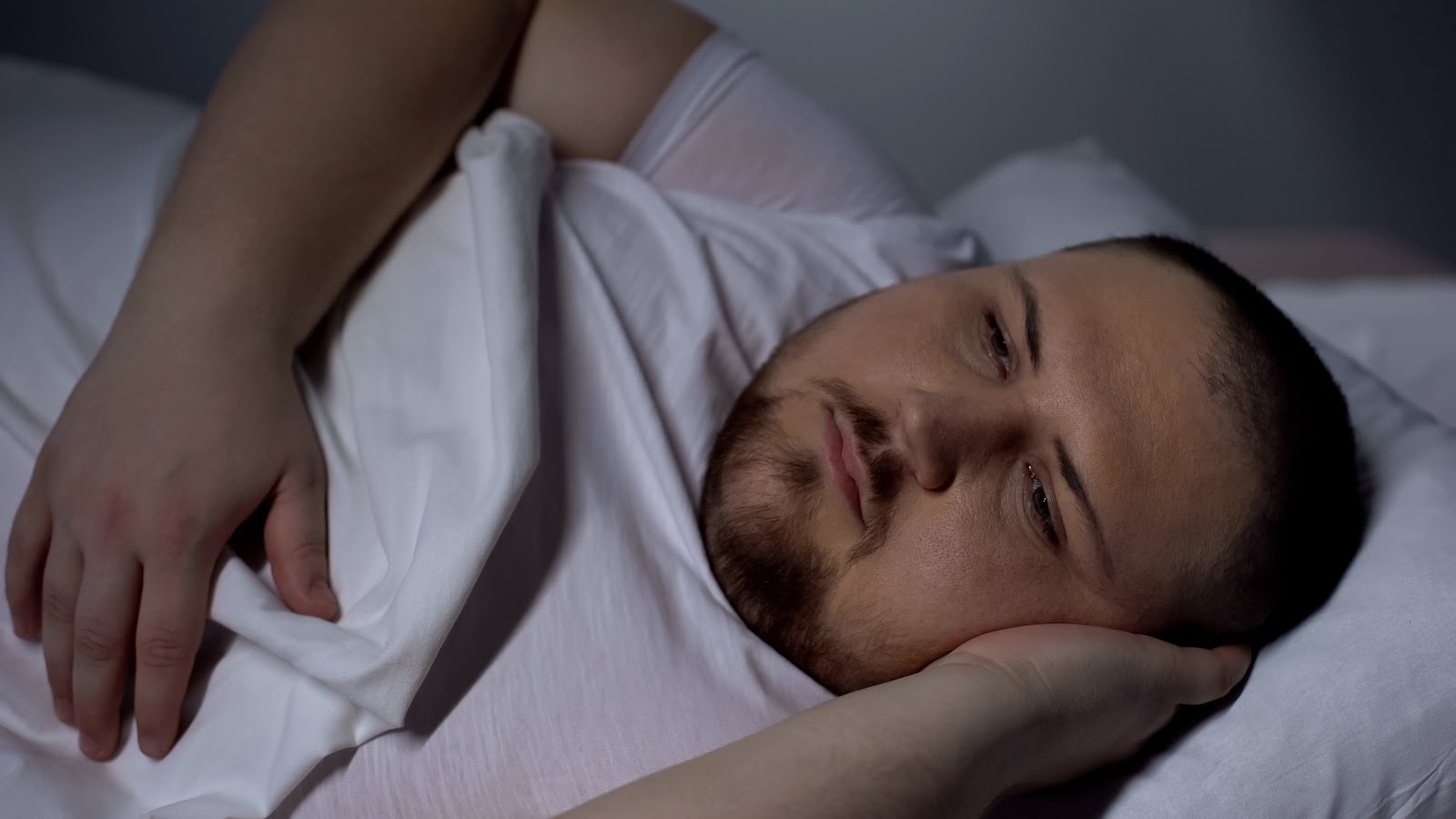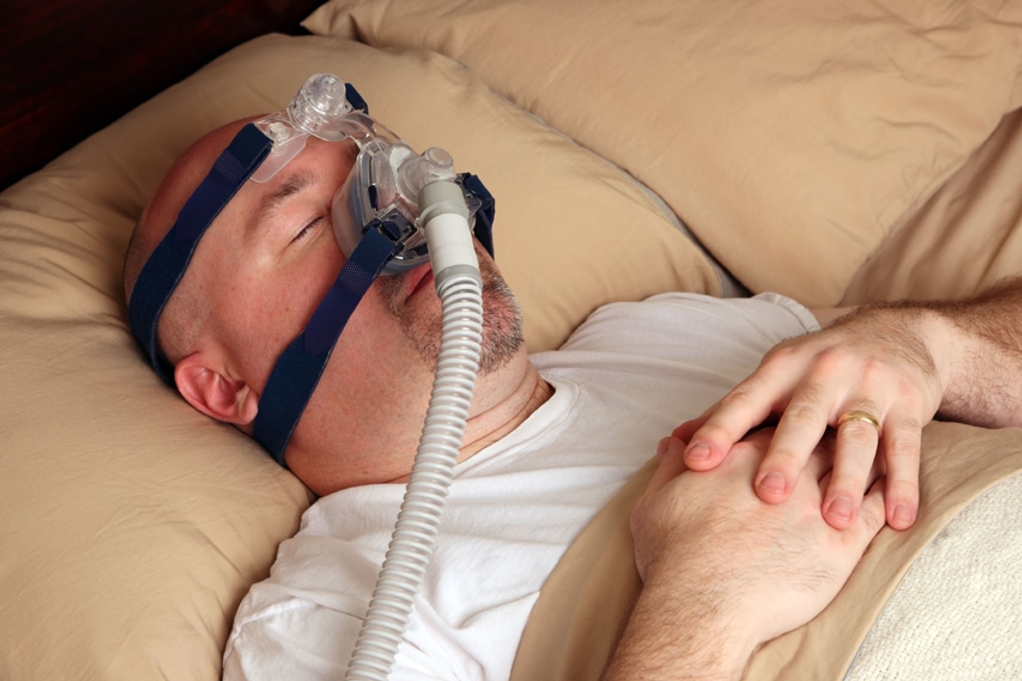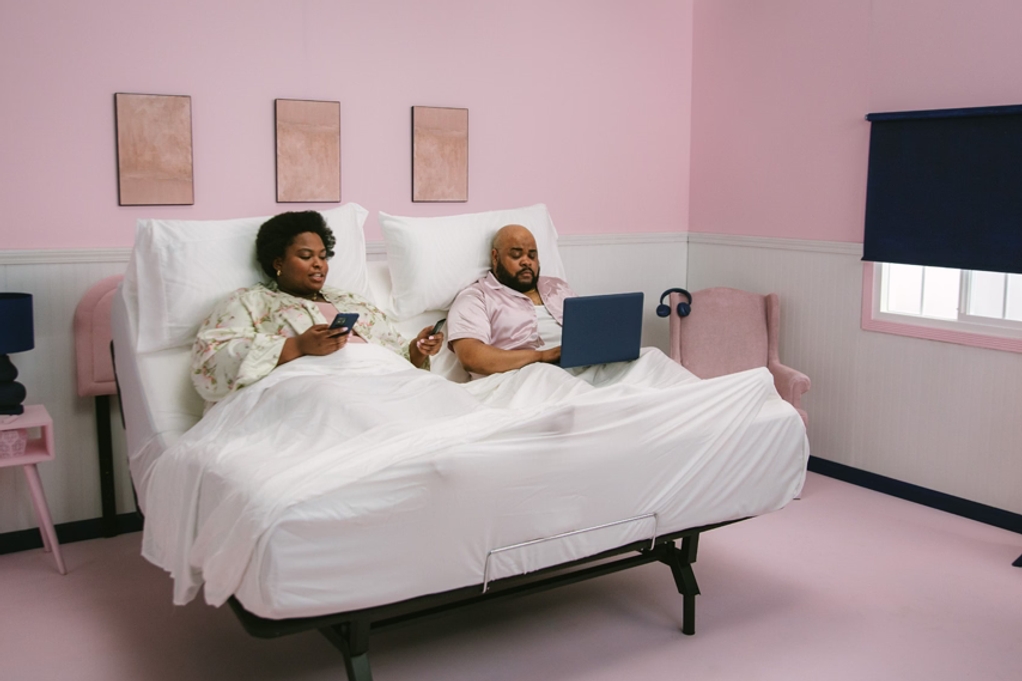Everyone experiences a bad night of sleep from time to time. If you find that you're struggling to sleep or you're sleeping too much regularly, you may be suffering from a sleep disorder.
There are few things worse than living day to day without proper rest. We started looking deeper into sleep disorder education after hearing from customers across North America suffering from clinical problems with their sleep. The result is this blog series, designed to bring awareness to sleep disorders and identify what you can do if you feel you may have a serious problem impacting your rest.
We've talked about insomnia and sleep apnea . Here, we'll bring awareness to the not-so-common sleep disorders that some people experience, as well as steps you can take to get better-quality rest if you find yourself afflicted with sleep issues.
Narcolepsy
People who suffer from narcolepsy experience extreme sleepiness during the day, even after a night of seemingly good sleep. Narcolepsy can be dangerous, as people who have the disorder may fall asleep suddenly, even while driving. Narcolepsy is caused by a problem in the mechanism of the brain that allows the mind and body to switch between sleep and wakefulness.
Some people who suffer from narcolepsy also experience a condition called cataplexy, in which the body goes limp when they experience extreme emotions (even if the emotions are positive). The combination of cataplexy and narcolepsy attacks can make it difficult to function at work or school.
While there is no cure for narcolepsy yet, there are medical treatments that can help to ease the symptoms of the condition.
Restless Leg Syndrome (RLS)
People who suffer from RLS experience a nearly impossible-to-ignore urge to move their legs at night when they lie down to go to sleep. The name restless leg syndrome is a bit of a misnomer, as the condition can affect the arms as well. Many people who suffer from RLS find that their sleep quality declines as the symptoms continue over time. The thought of going to bed can create anxiety, as they know RLS may kick in as soon as they lie down.
There's no known cause of RLS, but it's more likely to occur during pregnancy, and genetics can also play a role.
Parasomnia
Parasomnia causes abnormal behavior while sleeping. Sleepwalking, sleep talking, nightmares, night terrors, sleep-related groaning, confusional arousal, teeth grinding, bedwetting, sleep-related eating disorder, sleep texting (sending text messages during sleep) and even sleep-driving can all be parts of parasomnia.
During a parasomnia episode , the person who is suffering from the disorder may appear to be awake, even though they're asleep. Other people may not be able to tell the difference between when a person who suffers from parasomnia is awake or when they're having an episode. While people who experience parasomnia may get an appropriate number of hours of sleep, they often don't feel rested when they wake up.
There are several causes of parasomnia, including PTSD, stress, anxiety, the use of certain medications, sleep deprivation, neurological conditions and more. Children are more likely to experience parasomnia than adults, and most children grow out of parasomnia episodes by their early teens.
Circadian Rhythm Disruption Disorder
While we often don't think about how the body regulates sleep, the brain and body have an internal clock that regulates circadian rhythms (sleep cycles). The brain uses light to regulate sleep and wake cycles. When the brain senses less light, it releases melatonin, a chemical that induces sleep. When the brain senses more light, it tells the body that it's time to wake up. Many issues can affect the body's circadian rhythm. Shift work sleep disorder is a problem experienced by many people who work overnight and try to get their sleep when they're off from work during the day. It can be hard to wake up the mind and body when it's dark outside, and it can be difficult to go to sleep during the day, especially as the sun is rising. Some people can easily adjust to working overnight, while others struggle to get healthy sleep after changing sleep patterns.
Kleine-Levin Syndrome
Primarily affecting adolescent males, Kleine-Levin syndrome is characterized by an extreme need for sleep (up to 20 hours per day!), behavioral changes and an excessive need for food. When awake, people who suffer from this disorder may be irritable and lethargic. Kleine-Levin syndrome is cyclical – symptoms tend to come and go over time. This disorder is extremely rare and may be caused by genetic factors.
Many teens who suffer from Keine-Levin syndrome grow out of their symptoms over time. While some people never experience symptoms again, others experience a resurgence of their symptoms later in life.
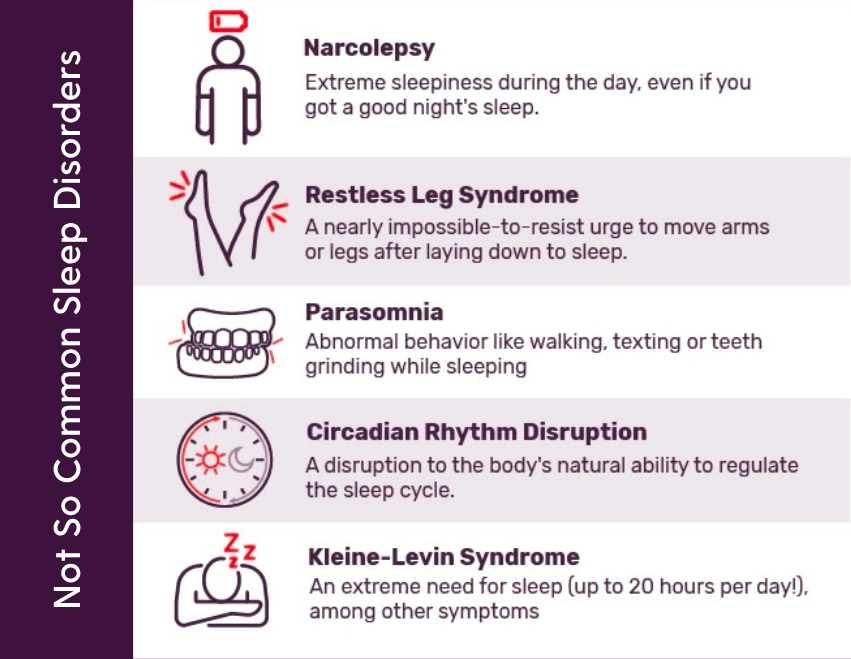
Do You Have a Sleep Disorder?
Symptoms of a sleep disorder may include not feeling rested no matter how much sleep you get, struggling to fall asleep many nights in a row, a strong urge to nap during regular daily activities, increased dependence on caffeine or other stimulants to get through the day, irritability, anxiety, weight gain, declining performance at work or school and more.
If you suspect that you may have a sleep disorder, you must seek treatment from a medical professional. Sometimes, sleep disorders are signs of an underlying condition that needs treatment. Your doctor can work with you to assess your symptoms. They may ask that you go through a sleep study so that they can see your symptoms in action.
Sleep Disorders: How to Cope
It can be frustrating to deal with a “silent illness” like a sleep disorder. Stress can worsen sleep disorders, and not sleeping can cause stress, creating a vicious downward spiral. Know that talking with your doctor about your sleep issues can only help, and understanding the complexities of your sleep problem will help to lower your stress levels. Staying in regular communication with your doctor about your sleep progress can help to ensure that you're moving toward the restful sleep that you need.
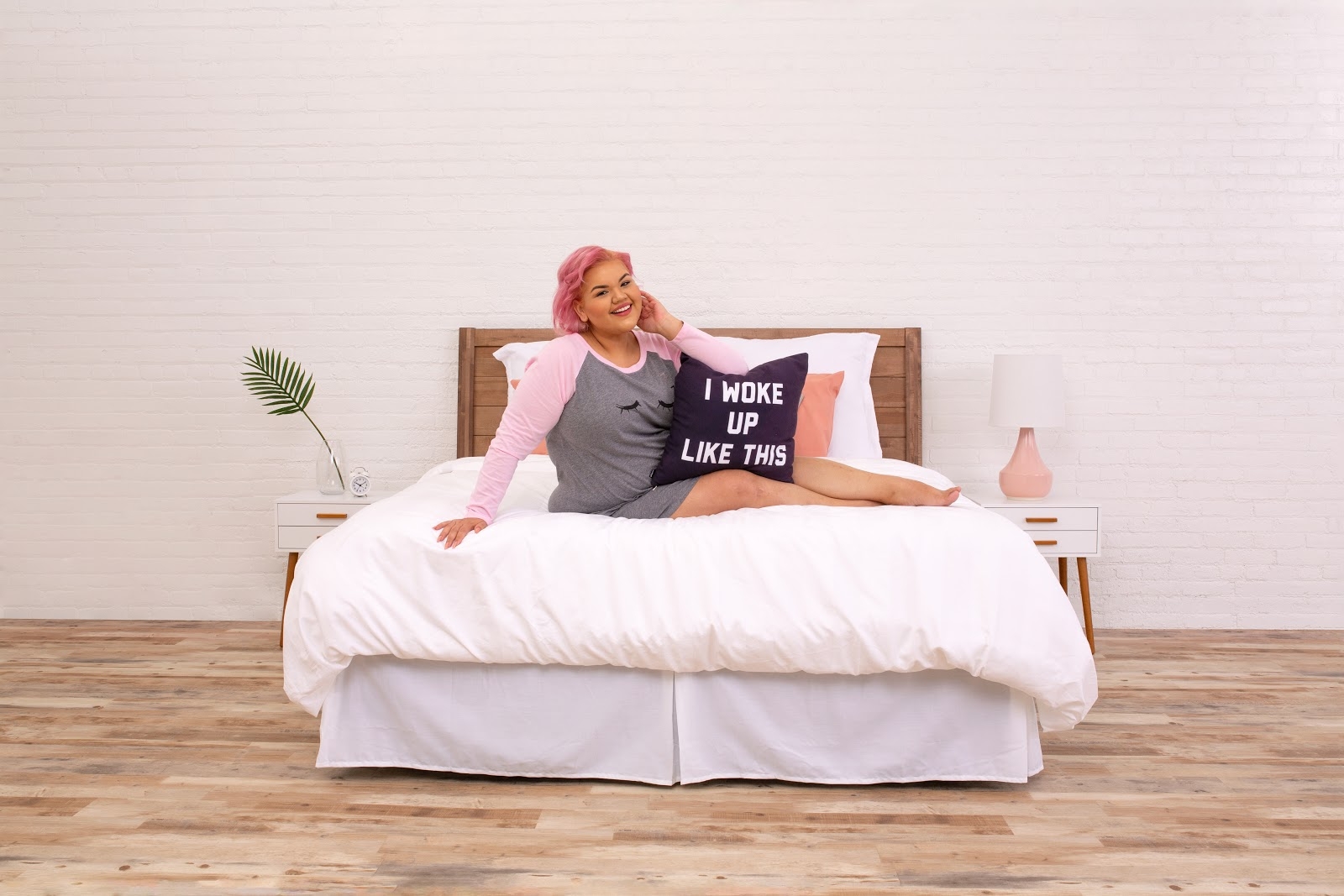
Enhancing Your Sleep Environment
If you've been diagnosed with a sleep disorder, there are several things that you can do to increase your chances at recovery (in addition to following your doctor's instructions). Enhancing your sleep environment by getting a mattress that's perfect for your body type, ensuring that your bedroom is tidy and smells nice and keeping a cool temperature in your room at night can all positively affect both the quality and quantity of your sleep.
Keeping a sleep diary can also help you to overcome sleep issues. When you keep a log of how you sleep each night, you'll easily be able to share your sleep issues with a healthcare professional who can pinpoint trends and issues, making it easier to diagnose any problems.
To get the best sleep possible, you need a mattress that's designed for your body. At Big Fig Mattress, we understand the unique needs of plus-size/big and tall sleepers, and we've worked tirelessly (no pun intended) to develop a mattress that addresses the unique needs faced by heavier sleepers. Every Big Fig comes with proper edge support , hand-created tufts to prevent materials shifting, sleep cool technology, high-density layers of foam to stop sagging and more.
When you sleep big, you live big. By upgrading to a Big Fig Mattress, you’ll get the sleep that you need – and the comfort you deserve. Learn more about the big differences that makes a Big Fig Mattress the perfect sleep solution for bigger figured sleepers.

